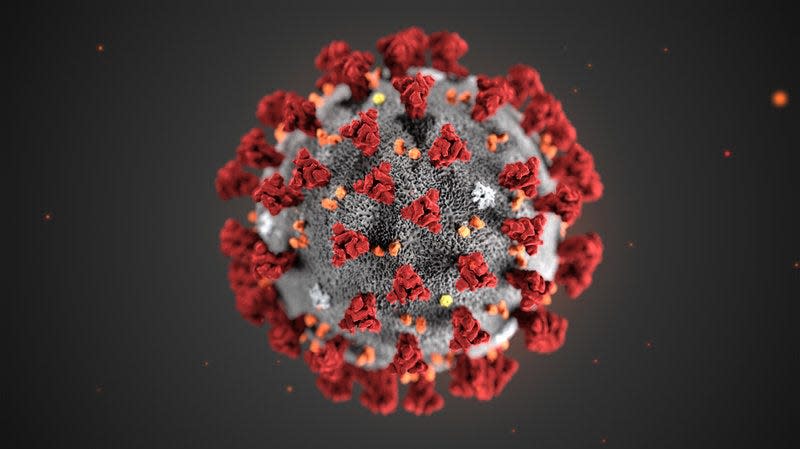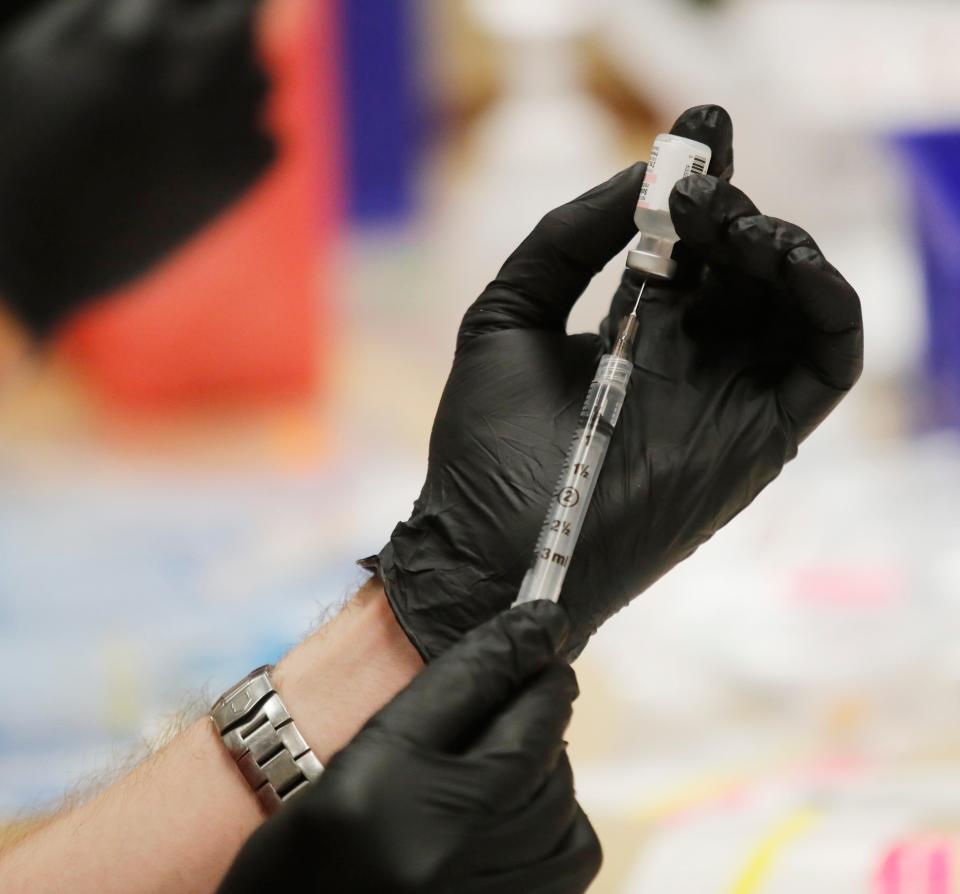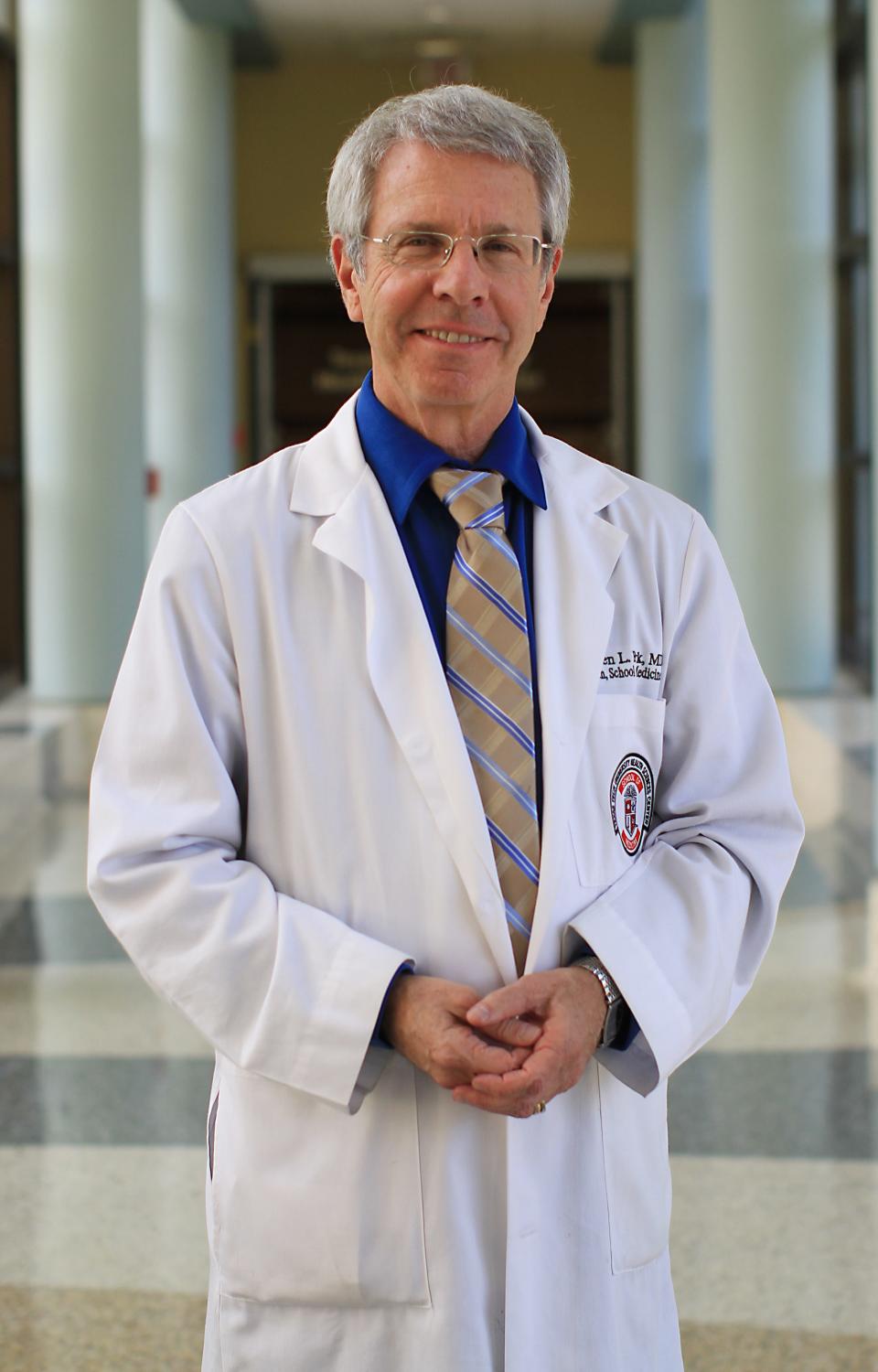A long-term mystery: TTUHSC experts talk concerns, treatments for Long COVID-19
Loss of taste or smell, brain fog, and respiratory problems are just a few of the lingering symptoms for some of those who have had COVID-19.
Dubbed Long COVID, Dr. Steven Berk, dean of the School of Medicine at Texas Tech Health Sciences Center, said there is no real definition for the long-term symptoms many have reported in the nearly three years since the COVID-19 pandemic began.

“The National Institutes of Health has been defining long COVID,” Berk said. “What we mean by long COVID is persistent symptoms, months after someone has been infected with COVID-19 and it's becoming a huge issue for the country, especially because we now realize that some individuals might have very mild COVID symptoms, and yet the real problem could be the long haul symptoms.”
The reason it's hard to put a definition to these continued effects is due to how the symptoms manifest in each individual.
Dr. Victor Test, division chief of pulmonary and critical care for TTUHSC, said the American Medical Association has identified 50 symptoms related to Long COVID, and with so many symptoms it makes it easy for doctors to misdiagnose Long COVID or another underlying illness.

“Over 50 symptoms have been identified, but 58% of people with Long COVID have fatigue and 44% of patients have headache,” Test said.
Not only are headaches a leading symptom, according to the AMA, but so are other neurological symptoms, Berk said.
“People even say, there was me before COVID and now there's me after COVID which is pretty, pretty serious,” he said. “Chronic fatigue is a big one, just not having the same energy that they had before COVID-19 — actually very similar to what we used to call chronic fatigue syndrome.”
However, the most confusing mental health symptom is the brain fog patients talk about, Berk said.

He said there is one study that shows the antibodies the body makes when fighting the virus may work its way up into the brain.
Test said that, according to AMA, 27% of individuals have brain fog, however, treatment for brain fog is unclear at this point as it is still relatively new.
“For some things like pulmonary fibrosis, we know how to treat that. And we tend to treat it the same as we would any other kind of pulmonary fibrosis,” Test said. “People with severe overwhelming fatigue and brain fog and symptoms like that – which can be quite debilitating – the treatment is really not very well defined at all.”
Other complications include respiratory cells being destroyed, which creates a loss of taste and or smell for an extended period of time, Berk said, as well as myocarditis, inflammation of the heart muscle.
“When you put all these together, some studies have said 20% of people who have had COVID continue to have one of these long-standing symptoms, so that's a pretty severe issue,” he said. “And to me, what makes it even worse, is as we start to realize that COVID right now is not that serious.”
Berk said that the notion of COVID-19 not being serious comes from those contracting the virus and only having mild symptoms.
“The problem is, the correlation with the post-COVID symptoms doesn't seem to correlate with the severity of the disease,” Berk said. “So you can have minor COVID And then, after two weeks, the infection is done and you're fatigued for months. So it's pretty scary.”
As of right now, there is no clear treatment for Long COVID, Berk said. Rest is the best option as well as taking a break from working out.

“That this is another good reason to get vaccinated against COVID-19 because if you do get COVID, which of course you might, even with the vaccine, the chance of you getting long haul or long term COVID symptoms is way less,” he said.
COVID-19 by the numbers
Currently, there are 34 new cases reported by the Center for Disease Control in Lubbock County with an average of seven new cases a day. The overall trend of cases in the past 30 days has shown the number of new cases slowing down.
According to the State of Texas Health and Human Services COVID-19 Vaccination in Texas Dashboard, 49.14% of 6-year-olds and up have received both doses of the Moderna or Pfizer vaccines or the single-dose Johnson & Johnson Vaccine in Lubbock County.
About 83.68% of those ages 65 years old and up have been fully vaccinated, according to Texas Health and Human and Services. Also, 75.61% of the State of Texas has been vaccinated.
This article originally appeared on Lubbock Avalanche-Journal: Texas Tech HSC experts talk concerns, treatments for Long COVID-19

